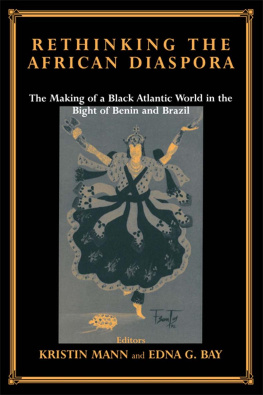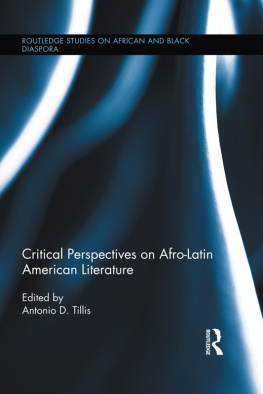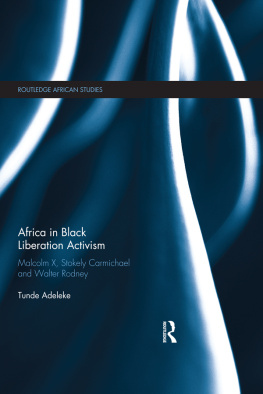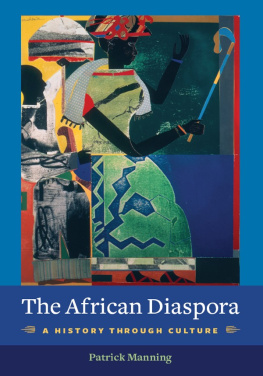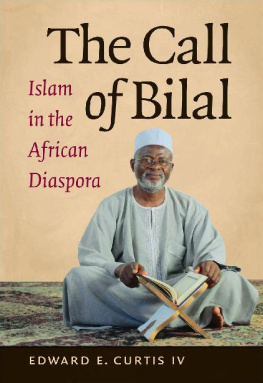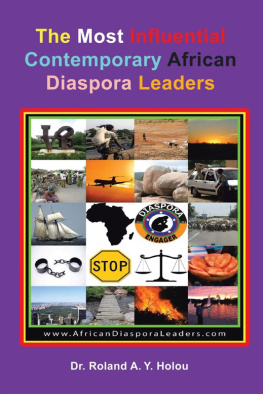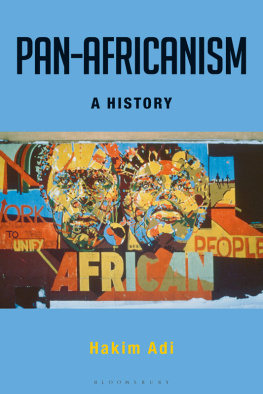Media Across the African Diaspora
This volume gathers scholarship from varying disciplinary perspectives to explore media owned or created by members of the African diaspora, examine its relationship with diasporic audiences, and consider its impact on mainstream culture in general. Contributors highlight creations and contributions of people of the African diaspora, the interconnections of Black American and African-centered media, and the experiences of audiences and users across the African diaspora, positioning members of the Black and African Diaspora as subjects of their own narratives, active participants and creators. In so doing, this volume addresses issues of identity, culture, audiences, and global influence.
Omotayo O. Banjo is an Associate Professor in the Department of Communication at the University of Cincinnati, USA. She focuses on representation and audience responses to racial and cultural media. Her work has been published in Journal of Broadcasting and Electronic Media, Communication Theory, Journalism and Mass Communication Quarterly, Journal of Media and Religion, and Race and Social Problems. She most recently coedited a volume on the topics of race, ethnicity, and faith called Contemporary Christian Culture: Messages, Missions, and Dilemmas.
Routledge Transformations in Race and Media
Series Editors: Robin R. Means, Coleman University of Michigan, Ann Arbor
Charlton D. McIlwain, New York University
Interpreting Tyler Perry
Perspectives on Race, Class, Gender, and Sexuality
Edited by Jamel Santa Cruze Bell and Ronald L. Jackson II
Black Celebrity, Racial Politics, and the Press
Framing Dissent
Sarah J. Jackson
The Cultural Politics of Colorblind TV Casting
Kristen J. Warner
The Myth of Post-Racialism in Television News
Libby Lewis
Representations of Black Women in the Media
The Damnation of Black Womanhood
Marquita Marie Gammage
Race and Contention in 21st Century U.S. Media
Edited by Jason A. Smith and Bhoomi K. Thakore
Race, Gender, and Citizenship in the African Diaspora
Travelling Blackness
Manoucheka Celeste
Media Across the African Diaspora
Content, Audiences, and Global Influence
Edited by Omotayo O. Banjo
Media Across the African Diaspora
Content, Audiences, and Global Influence
Edited by
Omotayo O. Banjo
First published 2019
by Routledge
711 Third Avenue, New York, NY 10017
and by Routledge
2 Park Square, Milton Park, Abingdon, Oxon OX14 4RN
Routledge is an imprint of the Taylor & Francis Group, an informa business
2019 Taylor & Francis
The right of the editor to be identified as the author of the editorial material, and of the authors for their individual chapters, has been asserted in accordance with sections 77 and 78 of the Copyright, Designs and Patents Act 1988.
With the exception of , no part of this book may be reprinted or reproduced or utilised in any form or by any electronic, mechanical, or other means, now known or hereafter invented, including photocopying and recording, or in any information storage or retrieval system, without permission in writing from the publishers.
. They have been made available under a Creative Commons Attribution-Non Commercial-No Derivatives 4.0 license.
Trademark notice: Product or corporate names may be trademarks or registered trademarks, and are used only for identification and explanation without intent to infringe.
Library of Congress Cataloging-in-Publication Data
CIP data has been applied for.
ISBN: 978-1-138-06548-2 (hbk)
ISBN: 978-1-315-15965-2 (ebk)
Typeset in Sabon
by codeMantra
It is always a pleasure and an honor to be invited to write the Foreword to a new volume. It is an even greater pleasure when the book provides a reason to interact with texts you havent revisited in some time.
Serendipitously, the new trailer for the film Black Panther debuted as I began writing this piece. As an avid comics fan, it was a happy coincidence that the movie preview for and a chapter about the Black Panther comic series (from which the movie was adapted) came to my computer at exactly the same time. As I watched the highly anticipated trailer on my laptop, I thought to myself that this snippet from the movie aptly illustrated the dominant Western medias troubled relationship to representations of the African continent and people of its diaspora.
The trailer begins with a white interrogator questioning a white male prisoner. Both are being watched, via a two-way mirror, by two people of African descent. The prisoner asks his interrogator:
What do you know about Wakanda?
Wakanda is the fictional home of the titular hero, the Black Panther. The interrogator answers by reeling off stereotypes of a premodern, preindustrial culture:
Its a Third World country. Textiles, shepherds, cool outfits.
Intercut with his glib response are shots of a rural, lush landscape of a nation in Africa: Wakanda. As the interrogator finishes his description, the prisoner laughs and tells his captor that he has been fooled: Wakanda is much more advanced. As he speaks, the camera takes the viewer over waterfalls and cliffs, then pulls back to reveal a spaceship, skyscrapers, and other technological wonders created by Wakandans; that is, technological wonders designed by and for Black African people.
The juxtaposition of Western assumptions about the primitive characteristics of African countries with the reality of Wakandan technological advancement provides an interesting launch point for this collection. Professor Omotayo O. Banjo Adesagba and her colleagues deliver an impressive set of chapters that break through the persistent myths and stereotypes of Africa as a land time forgot, a place that does not produce its own industry or narratives, let alone sophisticated modern media.
Media Across the African Diaspora is a welcome addition to works on race, media, and international flows and exchanges of representations of Africa, Africans, and Blackness. The books chapters deliver subtle insights and introduce new frameworks for thinking not only about media in the context of Africa and its diaspora, but also rethinking standard approaches to global media studies, studies which all too often begin and end with the assumption that the West is the main driver of global flows and the key designer of transnational mediascapes. Our field remains quite U.S.- and Euro-centered in terms of topics and locales. The book calls on readers to reconsider what we mean when we say global media, how we study diasporic identities, and how we imagine publics formed in digital spaces. Media Across the African Diaspora invites us to expand the scope of our questions about race, media, national identity, media production, and reception in the digital age.
The collection takes seriously the unique historical connections between the African continent and its U.S.-based diaspora, but does not romanticize these connections. Through a breadth of texts, technologies, and geographies,


